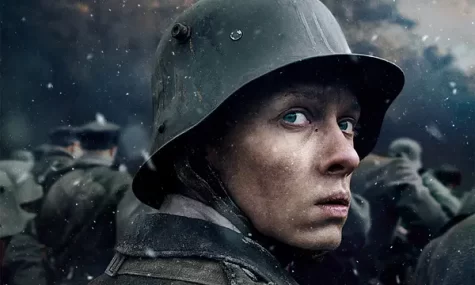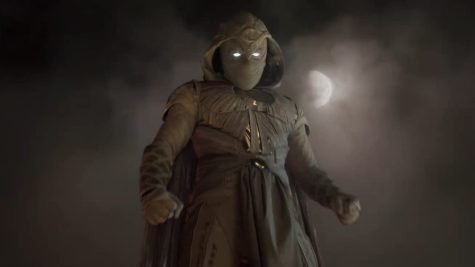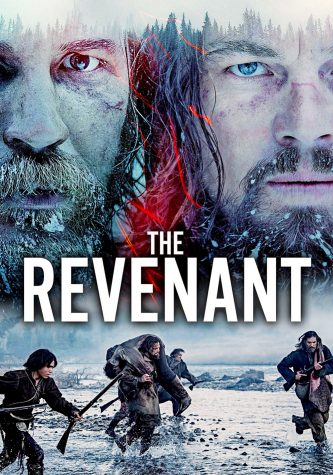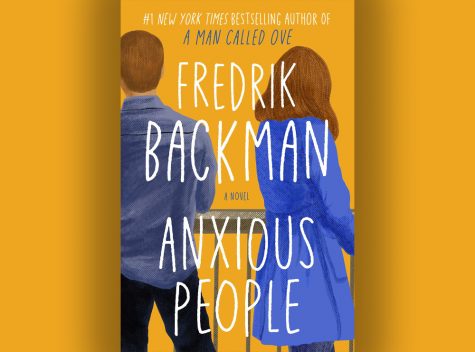Xavier and Mercy’s Anon(ymous): Captivating and Emotional
December 3, 2018
“Where I come from”—these are the words that stick with you after seeing Xavier and Mercy’s production of Naomi Iizuka’s Anon(ymous). Full of potent imagery and well-placed humor, the play proves to be a relevant commentary on modern issues regarding cultural displacement, immigration, and family, and shows the exceptional talent and hard work of all the Xavier and Mercy students involved.
Perhaps the most remarkable strength of the play were the characters, who were engaging, lively, and funny all throughout. No doubt thanks to the hard work of all the actors, actresses, make-up artists, and choreographers, each character felt distinct, real, and genuine. One could connect and identify with the plights and sorrows of the main character Anon (played by Duane James Jr.), or (spoilers!) feel sorrow when Anon’s friend Pascal (Aiden Cardozo) died to the hands of a manic chef (Sebastian Fazzino), or feel genuine dislike for the controlling boss (Wylie Malcom) of Anon’s mother. One could even feel a deep pain when our very own Kevin from the Kestrel lay still on the stage floor after a violent truck crash, which, despite its violence, could not, despite all its efforts, separate Kevin’s grip from the steering wheel.
The play begins with a lone figure in near total darkness: Anon (played by Xavier freshman Duane James Jr.), who dramatically describes reasons that made he and his mother flee their home country. He starts each reason with “Where I come from.” Paired with the dark setting and emotion of pain and distress that can be heard from Anon’s voice, one is immediately captivated. Anon is then joined by other immigrants and refugees (the ensemble), who fill the stage and face the audience and join Anon in describing war, death, and violence—beginning each with, “Where I come from.”
Right from the start, the play makes clear its focus on modern issues of immigration. As the play progresses, many different fates of immigrants are explored, from refugees, to outlaws, to addicts, to sweatshop workers, and even to human trafficking victims. Drawing attention to the extent of the types of problems that immigrants can find themselves in, the play urges the audience to not forget about immigrants’ humanity. One of the central themes of the play is to fight the tendency of reducing migrants to simply a number, statistic, or nuisance comparable to that of a mosquito.
The play’s plot was familiar and easy to follow. The play draws inspiration from Homer’s Odyssey, a Greek epic poem that you have probably read in English class. In the play, the mother of Anon tries to delay her forced marriage to her boss by using one of her people’s customs as a pretense: before marriage, she must first weave a funeral shroud for her son Anon, who she thinks died when they tried to flee their country. This calls back to the Odyssey where Penelope used the same trick on the Greek suitors who wanted her hand in marriage. I found this to be a great way of keeping the play relatively simple to follow while remaining interesting, allowing the audience to see and digest the larger message of family, friendship, and tenacity.
One characteristic that makes this play stand out from other previous Xavier–Mercy plays is the lead: Duane James Jr., the first Freshman lead in the six-year history of Xavier–Mercy productions. When I spoke with him Thursday night before the final show, James looked relaxed and calm. When I asked him about how this whole experience has been, he said it’s been “fun” and that “being around the cast and crew” has been the best part of being in the play. Surprisingly, he wasn’t stressed about the work that was required leading up to the play’s three showings, and when I saw the play it was evident that he—and all of the cast—had practiced countless times, evident in the confidence they delivered their lines.
The end of the play has Anon meet up with his mother once again, driving home James’ own words on what the play is really about: “that family is really necessary, and you need friends to be happy.”











